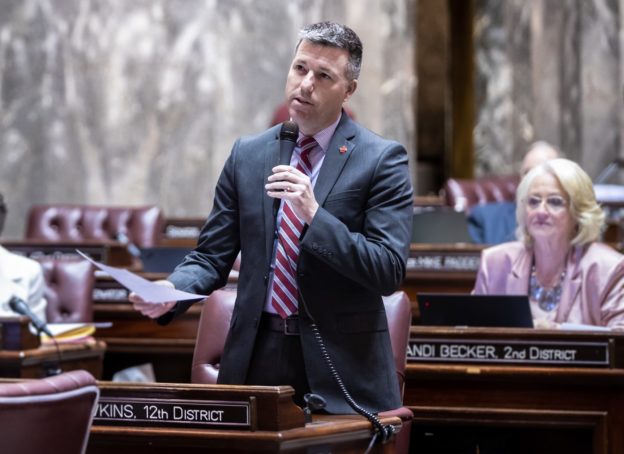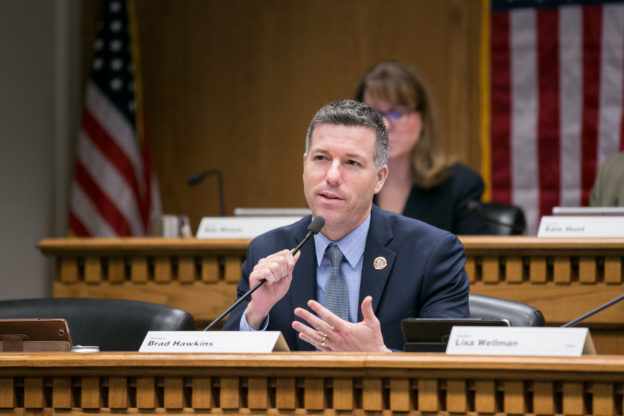Sen. Brad Hawkins, the ranking Republican on the Senate Early Learning and K-12 Education Committee, responded to today’s announcement of the “Get Ready Plan” partnership between the state Office of Superintendent of Public Instruction and Kaiser Permanente.
“I applaud Superintendent Reykdal for working with partners to bring in expertise and plan ahead for school employee vaccinations,” said Hawkins, who serves the 12th District and is a former Eastmont School Board member. “I’m thankful that the governor changed course on January 18th to acknowledge that all school employees, regardless of age, will be eligible to get vaccinated in the next phase. School employees across Washington – our teachers, administrators, and support staff – are helping our state fulfill its paramount duty and deserve to be protected.
“I still believe it is important for Governor Inslee and the Department of Health to allocate the vaccines to regions in proportion to their population and to allow local health providers and health districts to coordinate vaccine distribution.
“To the question about logistics, I believe the partners can get employee lists from their school districts, ask staff to present identification cards, and start getting vaccines administered as soon as they are allowed. School employees are critical workers and deserve to be protected as soon as possible.
“The reality is that our state will not get back to normal until our schools are fully functioning. The best way to make that happen is to get our school employees vaccinated now alongside our older Washingtonians because, unlike some of them, school employees will not be able to self-isolate.”
Hawkins acknowledges the challenge of coordinating vaccinations, but he believes it is often made worse by the state’s “top-down” approach and limiting flexibility at the local level.
“I’m thankful the health-care providers in my region – even prior to the governor’s designation of the Town Toyota Center as a regional distribution site – have been successful at getting vaccinations administered. However, the state should simplify things and provide more local flexibility in decision-making and vaccine distribution,” said Hawkins.
(PHOTO CAPTION: Senator Brad Hawkins of the 12th District is a former school board member and the ranking Republican member on the Senate’s Early Learning and K-12 Education Committee.)












